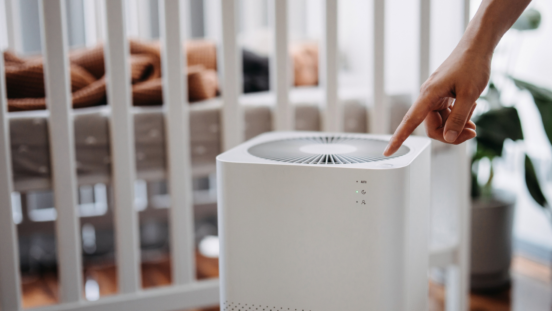Research says an early bedtime means more sleep for bub … and you!
And keeping your baby up late doesn't guarantee you a lie in.
Making life work around the availability of sleep windows is a concept every parent knows all too well. And when it comes to finding those windows we’re often at the mercy of the youngest members of the household.
Now research has found that we may have been doing it all wrong.
Those hoping to avoid a rude early awakening to the day might be forgiven for assuming that the later baby goes down for the night the later they’d rise too. Makes sense, right?
Wrong.
Researchers from Virginia Commonwealth University have discovered that a baby will wake at the same time, no matter what time you popped them down, meaning that late night could have very well shortened the amount of sleep they would have had if they’d an early night.
What the researchers discovered was that putting babies to bed earlier, rather than later, gave them the best chance at having a longer sleep throughout the night.
During the study, published in Science Direct, the sleep routines of 24 babies were monitored. What researchers discovered was that the old body clock idea kicks in at an early age, with babies waking up at the same time, no matter what time they went to sleep. Putting them to bed later was counter productive and had no real impact on the time they woke up.
The latest recommendations suggest putting infants to bed at an age-appropriate hour, usually between 7pm and 8pm.
Looks like if we want a lie in, we might need to wait until they’re teenagers, because nobody wants a tired cranky baby on their hands.

If you want bub to have a longer sleep, they need to go down early.
The study did find that for every hour later a baby was put to bed they’d wake up eight minutes later the next morning, but those extra minutes of snoozing were made redundant by that fact that babies had more wakeful periods overnight.
Researchers gathered data by examining the sleep routines of 24 infants over three separate week-long periods at six weeks, 15 weeks and 24 weeks old.
What they discovered was that babies who went to bed earlier at an “age appropriate” time, slept longer throughout the night with fewer waking periods and in some cases a later wake-up time the next day.
On average, for every one hour earlier than their usual bedtime that the babies went down for sleep, they got an extra 34.4 minutes of sleep overnight.
WATCH: Parenting Time Lapse. Continues after video …
“Shorter sleep duration during infancy is associated with adverse health outcomes, including greater adiposity, poorer emotion regulation, impaired growth, and later-life obesity,” the researchers said.
They continued: “Implementing a consistent bedtime routine has been associated with numerous health outcomes that are well-described.”
The health benefits of a good sleep patterns in the first twelve months are many. The study researchers list some of them as: “longer nighttime sleep duration, shorter sleep onset latency, reduced nighttime wakings, and greater sleep consolidation at night.”
The team say previous studies have shown that for children put to bed later as babies there is a greater risk of obesity by the time they are aged two t0 six years old.
“As such, infants should be put to bed at an age-appropriate hour to promote longer nighttime sleep and keeping infants up in hopes they will sleep in appears ineffective.
“Further, our findings support the benefits of a consistent bedtime routine and not feeding infants to sleep, particularly in the earliest months of life.”




